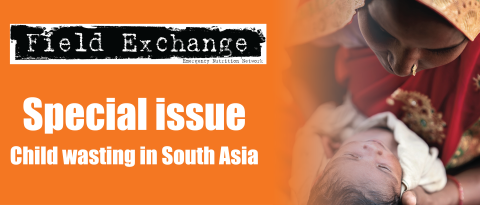Report of the South Asia ‘Stop stunting: Power of Maternal Nutrition’ conference
Report summary1
The second regional conference on stunting, held in May 2018, focused on efforts to scale up maternal nutritional care in South Asia. The conference, organised by the Secretariat of the South Asian Association for Regional Cooperation (SAARC) and the United Nations Children’s Fund (UNICEF) Regional Office for South Asia (ROSA), together with Nutrition International, brought together 120 participants from across the region to share learnings, analyses, evidence and experiences on the nutritional care of women during pregnancy and postpartum. The conference recognised that, while progress has been made, women’s nutritional status in the region is a serious cause for concern, with high rates of underweight, short stature and anaemia being reported, as well as rising rates of overweight and obesity. This is important for child wasting given the strong links between poor maternal nutrition and child wasting in South Asia, mediated through low birth weight (LBW).
The conference aimed to position the nutritional care of women during pregnancy and postpartum as an essential nutrition intervention, share new evidence and guidelines, and identify actions to accelerate improvements in maternal nutritional care. Country teams identified short and medium-term priorities to strengthen advocacy, policies, programme design, research and knowledge on maternal nutrition.
The conference culminated in a joint ‘call to action’ being developed to accelerate progress in the nutritional care of women. The 10 key actions which formed the call to action were:
- National policies and guidelines on maternal nutrition should be in line with evidence-based global recommendations, adapted to the country context.
- Maternal nutrition should be prioritised in national development agendas and sector plans and budgets.
- Greater focus is needed to operationalise national policies and plans, particularly at the sub-national level.
- Service-delivery platforms (particularly community-based platforms and services) should be maximised to reach women.
- Service-delivery packages should include context-specific interventions according to the prevalence of undernutrition and local context.
- Evidence-informed social and behaviour-change communication is needed.
- National health and nutrition information systems and surveys should include maternal nutrition indicators.
- Implementation research is needed to understand the barriers, enablers and pathways to delivering maternal nutrition interventions at scale and with equity.
- Investments are required from multiple sectors.
- Regional leadership and platforms are needed to support country actions and facilitate exchange of knowledge and experience.
It was concluded that strong political leadership, together with actions across multiple sectors, is required to achieve the call to action and to improve the health and wellbeing of women and children in South Asia.


